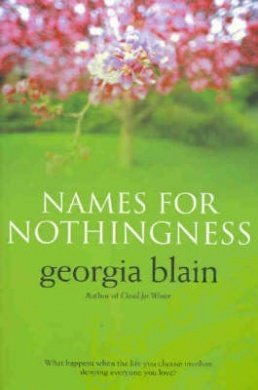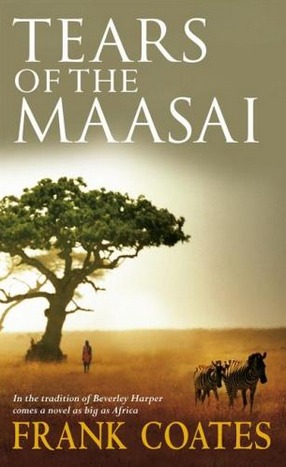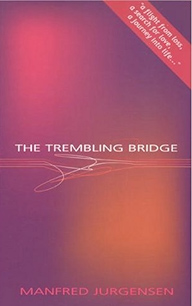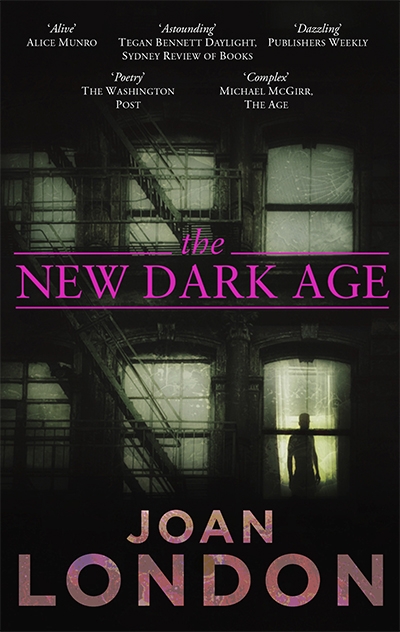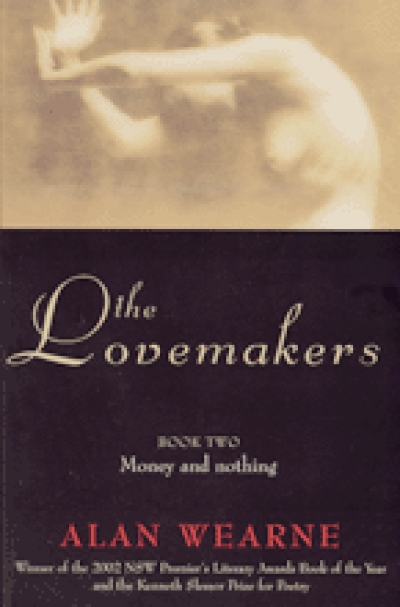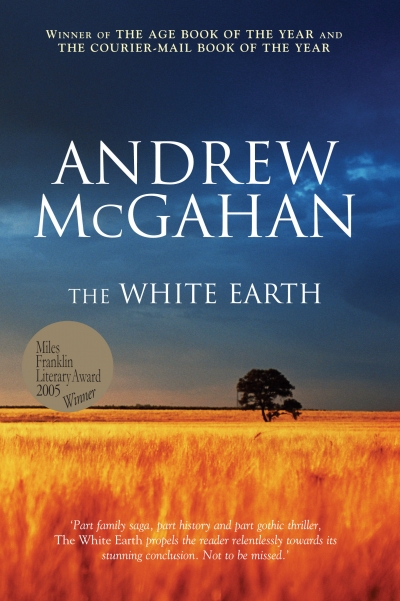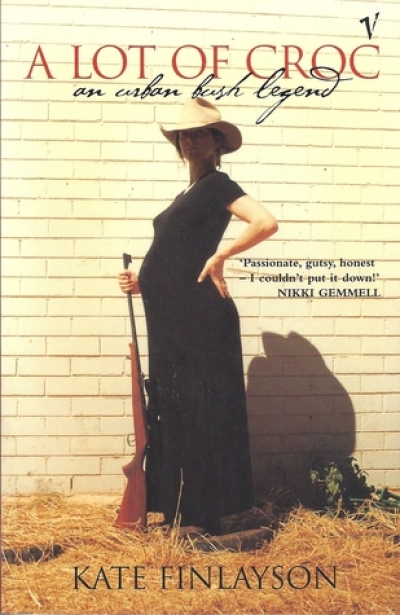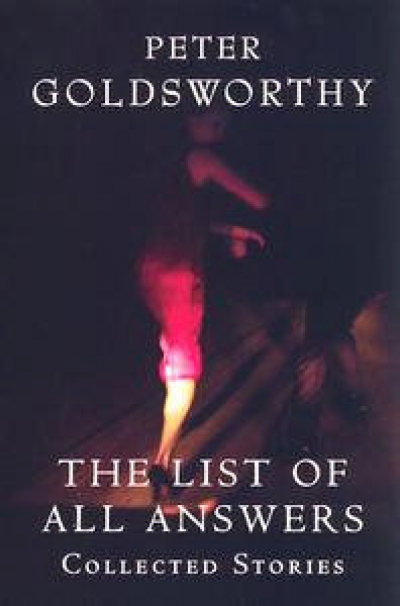Fiction
Leo Tolstoy and Georgia Blain share an understanding: ‘Happy families are all alike, every unhappy family is unhappy in its own way.’ In each of her four novels, Blain has written about families in various states of unhappiness. Her first novel, Closed for Winter (1998), was the story of Elise, an ‘unobtrusive and unnoticeable’ twenty-eight-year-old, struggling to come to terms with the unresolved disappearance of her sister twenty years earlier, hindered by her pompous partner and her deranged mother. Candelo (1999) was the tale of the more outgoing, but no less unhappy, Ursula, whose story is heavy with the connections between a recent suicide, memories of her dead sister and the ongoing depression of her brother. The Blind Eye (2001) was narrated by Daniel, a morose healer, who is haunted by the consequences of his own deceptions and the memory of a tortured patient from a wealthy, detached family. And Blain’s new novel, Names for Nothingness, is the story of Sharn, Liam and Caitlin, an unhappy family battling with issues that are both everyday and overwhelming.
... (read more)When faced with a new dictionary of quotations, I always test drive the section on heaven first.
This is despite the fact that the section on hell is generally longer and more engaging. My habit is a bit like reading travel porn about the ultimate destination. It’s also a good way to acquire wisdom without much effort as I wait for some kind soul to come to my rescue and publish Wisdom for Dummies, the next volume in that useful series which is still marred by some notable gaps. Parents will look in vain for Soothers for Dummies, and shopfitters won’t find Mannequins for Dummies.
... (read more)Tears of the Maasai by Frank Coates & Far Horizon by Tony Park
According to some bright spark at HarperCollins, Tears of the Maasai is ‘a novel as big as Africa’, while Far Horizon, in the words of a creative Pan Macmillan employee, is apparently ‘driven by an emotion stronger than love, lust or fear: Revenge’. After such fanfare, what can the reader expect? Well, the usual ingredients of putative blockbusters set in Africa (and here I mean southern Africa): a nicely digestible Manichean view of the world, unredeemable villains, brawny, good-hearted heroes, feisty, long-legged heroines and plenty of fearsome wild animals. Rider Haggard forged the tradition in 1886 with the hugely popular King Solomon’s Mines, and Stuart Cloete and Wilbur Smith, among others, have also made good use of the exotic and seemingly anarchic qualities of Africa’s people, fauna and flora. One memorable scene in a Cloete novel featured an enraged buffalo licking the skin and flesh off the lower leg of a hapless man stuck not quite high enough in a tree. Where else but in Africa could you find such abundant and exquisite contrasts of harshness and beauty along with legends of buried treasure and the possibilities of antediluvian experience? It was perhaps, in Haggard’s day, an ur-land, where clichés sprouted and were happily swallowed by a goggle-eyed imperial audience back home.
... (read more)The Trembling Bridge by Manfred Jurgensen & Dancing with the Hurricane by Leon Silver
Novel, autobiography, memoir? I imagine poet and editor Manfred Jurgensen dealing impatiently with the question – does categorisation matter? Aren’t books to be judged by intrinsic worth rather than labels? Up to a point, but in Book One especially (of two) there is enough equivocation to be annoying.
... (read more)Over the last couple of decades in Australia, short fiction has been a poor cousin to the literary novel. While this country continues to produce fine writers of short fiction, many of them struggle to achieve book publication of their works. Larger publishers often seem no more interested in collections of short fiction than they are in poetry collections. Their argument: short fiction, like poetry, does not sell. It has often been left to smaller Australian publishers to produce and promote short fiction writers, who are sometimes taken up by a major publisher if they achieve a notable success with a longer work.
... (read more)Alan Wearne’s The Lovemakers is a book about overdoing it. Its characters have unwise love affairs, dream foolish dreams, drink too much, engage in criminal activity, amass (and lose) vast wealth, and talk incessantly (usually about themselves). Wearne’s characters usually deal with obsession and with the places you get to in life if you overdo things. Few characters in this second part of Wearne’s epic verse novel age gracefully, and some don’t get to age at all. But The Lovemakers isn’t just about over-doing it: it performs overdoing it. Wearne’s aesthetic is one of excess, of conspicuous idiosyncrasy. Part of its excessiveness and oddity is its oxymoronic status. Wearne’s books are simultaneously poetic and prosy, realistic and outré, stylistically heterogeneous and tonally homogenous.
... (read more)Sybil’s Cave by Catherine Padmore & The Submerged Cathedral by Charlotte Wood
Several years ago, I was privy to a breakfast conversation with one of our venerable literary critics, in which he lamented the proliferation of novels in Australia by young women. Of particular concern, he announced, was the tendency of said young women to construct ‘itsy-bitsy sentences from itsy-bitsy words’. And he smiled around the table warmly, secure in venerable male polysyllabic verbosity. As a young woman myself of vague literary urges, I felt thoroughly rebuffed. The only words I could think to form were both too itsy-bitsy and obscene to constitute effective rebuttal, and they remained unsaid.
... (read more)‘White’ and ‘earth’ are not words that sit easily together in an Australian context, so much so that placing them thus seems almost deliberately unsettling. Juxtaposed, they only serve to remind us of things that are mostly too hard for us to look at directly, a claim to a possession all know to be ill-founded ...
... (read more)Kate Finlayson’s first novel is a bumpy bronco ride, as exhilarating, confronting, and messy as the Northern Territory that she writes about so passionately. Finlayson’s protagonist, Connie, is stuck barmaiding in a rough city pub. Despite her street smarts and university degree, Connie is starting to go to the dogs along with the pub’s patrons. She decides to leave Sydney to pursue a post-adolescent obsession with Rod Ansell, the inspiration for the Crocodile Dundee films. Ansell (his real name) is hiding somewhere in the Territory, and Connie fantasises about finding him and turning him into her ideal lover, her longed-for soul mate.
... (read more)Susan Sontag has identified in contemporary fiction what she calls an ‘impatient, ardent and elliptical’ drive. These are features, above all, of the well-wrought story, and they are also adjectives that well describe its inherent paradox: the story is contained but somehow urgent, intensified but working in a system of concision, suggestive but employing referential exorbitance. Four pages might betoken an entire world.
... (read more)

